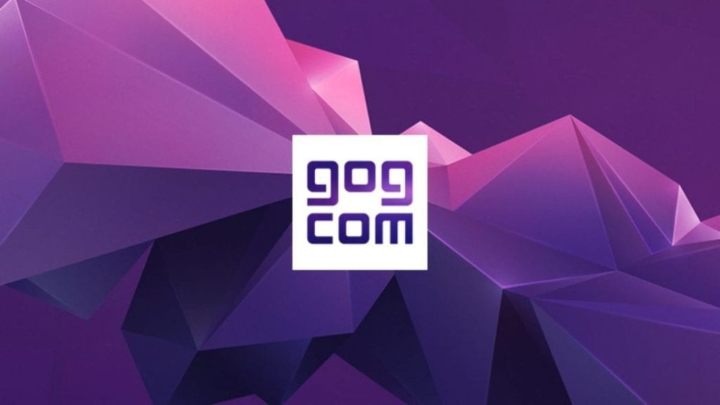Game Refunds on GOG - Developers Share Their Concerns
The new refund policy at GOG.com has triggered a wave of online discussions about the validity of this solution. Developers, especially the independent ones, are mostly against. The feelings of the players are extremely mixed.
1
Refund on GOG.com - dev reactions:
- The majority of creators speak negatively about GOG.com's refund policy, suggesting that it may lead to considerable abuse;
- Some even suggest that GOG.com is not fulfilling its role as a digital game shop;
- However, there are some exceptions, claiming that the new policy is not so terrible, and may even help with the decision to buy a game, and piracy remains a much bigger problem.
The update of the GOG.com store's rules and regulations, including the refund policy, has met with a heated response from the gamer and gamedev community. Let us remind that under the new rules, a buyer can ask for a refund within 30 days from the date of purchase, regardless of the status of the game (downloaded/ launched/tested). And although the GOG.com team points out in the regulations that requests will be dealt with individually, and too frequent, suspicious refunds will be denied, many developers have found this decision against their interests. We decided to look at their reactions on Twitter.

Definitely against
Ragnar Tornquist, head of Red Thread Games (Dreamfall: Chapters, Draugen), started with rolling out the big guns:
"We make our living from narrative-driven, single-player games that can be completed in a couple of days. We plan to keep making those games. But I’m not so sure they’ll be available on GOG."
Tornquist specifies that he agrees with users being able to get refunds in situations where players feel cheated or the game does not work properly on their hardware. However, he notes that he "can’t return a movie after watching it, or a book after reading it". At the same time, he asks: " Why should games be different?"
“I didn’t like it” should not be a reason for accepting a full refund after someone’s played through a game. I’ve hated plenty of restaurant meals. I won’t leave without paying. Instead, I just won’t go back to that restaurant. There’s risk involved in every purchase decision."
The dev of Dreamfall: Chapters and Draugen, as well as several of his interlocutors, also points out that GOG.com did not consult with developers about this decision (similar accusations are also directed at Steam and Epic Games Store). For the latter, and especially for independent developers, unjustified returns - read: those that exploit cracks in the system - may decide the fate of some of those teams.
"I know I’ll get yelled at for voicing this opinion, but that’s fine. As indies we balance on a very thin line financially. A return policy like this can easily be exploited, especially with games like ours. We don’t want to pivot to games-as-a-service or multiplayer to survive."
GOG.com is not fulfilling its role?
Raphael van Lierop, creator of The Long Dark, is equally critical of GOG.com's decision. In his opinion, this was a largely marketing move.
"This looks like a desperate way to try to differentiate your digital store at the expense of developers. A "2 play-hour/2 weeks of ownership refund window" is more than sufficient for customers to back out of a purchase for legitimate reasons."
In fact, Van Lierop believes that such a refund system creates an opportunity for players to play games for free, dumping all responsibility and costs on the developers.
"A store's job should be to surface your product to customers, clarify info that leads to informed purchasing decisions, build trust in your curation, and to provide the means for customers to get refunded when there are product defects, i.e. things are not as advertised. A store's job should not be to create an opportunity for people to easily try and finish your product for free, or if it is, the store should eat the cost of the refund, not the developer."
An interesting conclusion was shared by independent developer Felix Pretorg (Astrobelt Fighter, currently working on VoidDrift). It draws attention to the lack of DRM software, which is the main element distinguishing GOG.com from other digital game stores.
"Problem is that GOG being DRM free, can't really track how much you have actually played a game unless you play it using gog galaxy, I fail to see how they can actually implement a refund system that works while staying drm free."
The quoted developers are accompanied by Lewis Denby, head of the marketing agency for indie developers. Game If You Are. He believes that GOG.com's refund policy can lead to considerable abuse.
"Steam's policy (refunds if you have less than x hours played) is already so open to abuse, especially for singleplayer indie games, many of which are only a couple of hours long by design. But the GoG one is beyond even that. It effectively institutes a "pay if you want" model."

A voice of reason?
David Szymanski, the independent creator of the first-person action game DUSK, decided to take a closer look at GOG.com's offer. In a series of tweets, he describes how he panicked when Steam introduced their own refund system. It turned out, however, that things weren't as bad as he feared - the number of DUSK or The Moon Silver refunds was quite low. What could be the reason for that?
"The thing I've observed since is that a lot of gamers genuinely do want to support games and creators they like, even if the option to cheat the system is available, or even if they're ALREADY cheated the system via piracy. I can't say for sure if GOG's policy is going to open the doors to mass abuse, but I suspect not. People generally are cool with spending money on a thing if they like they thing. That's especially true where GOG's customer base is concerned."
Szymanski claims that for years the easiest way to get a game for free was through piracy - in recent years this has been especially true of indie games. For this reason, independent creators have learned to function based on the goodwill and integrity of the players. In most cases, this symbiosis worked very well. Moreover, according to Szymanowski, refunds can paradoxically make it easier for players to decide to buy a game.
"Also worth mentioning that devs tend to talk about the potential negatives of refund policies and disregard the potential positives. Namely, when the buyer knows they can get their money back if needbe they're more comfortable taking chances on things. I've definitely gone "ehh this might be crap but I might as well give it a shot, cause I can always request a refund if it's complete trash."
What do the players say?
Reactions of players to GOG.com's new refund policy are mixed, and the situation is similar on Twitter. No wonder - such a policy, even if more pro-consumer than the one on Steam or Epic Games Store (which definitely doesn't mean that the offer on the mentioned platforms is bad), on the one hand has no right not to please the customers, but on the other hand it gives a really big space for abuse. Most users seem to praise GOG.com for their decision and at the same time express concerns whether this solution is correct in the face of actions of people thinking only about their own benefit.
Will GOG.com stand by its decision, or maybe make changes? The coming months will be decisive.
1

Author: Peter Doron
Educated as a journalist and political scientist. In GRYOnline.pl since 2004. He started with previews and reviews, to join the Newsroom after a year and stayed there ever since. Currently the head of this department, where he manages a team composed of both specialists in their field and ambitious newbies, eager to learn and do their best. Former editor of emu@dreams, where he got by his fascination with emulation and consoles, as well as a reviewer for GB More magazine. A fan of information, games (it would take a long time to list favorite genres), the Internet, a good sci-fi and fantasy book, will also watch a well-crafted series or movie. Husband, father of three children, aesthete, advocate of moderation in private life.
Latest News
- End of remote work and 60 hours a week. Demo of Naughty Dog's new game was born amid a crunch atmosphere
- She's the new Lara Croft, but she still lives in fear. Trauma after Perfect Dark changed the actress' approach to the industry
- „A lot has become lost in translation.” Swen Vincke suggests that the scandal surrounding Divinity is a big misunderstanding
- Stuck in development limbo for years, ARK 2 is now planned for 2028
- Few people know about it, but it's an RPG mixing Dark Souls and NieR that has received excellent reviews on Steam, and its first DLC will be released soon

